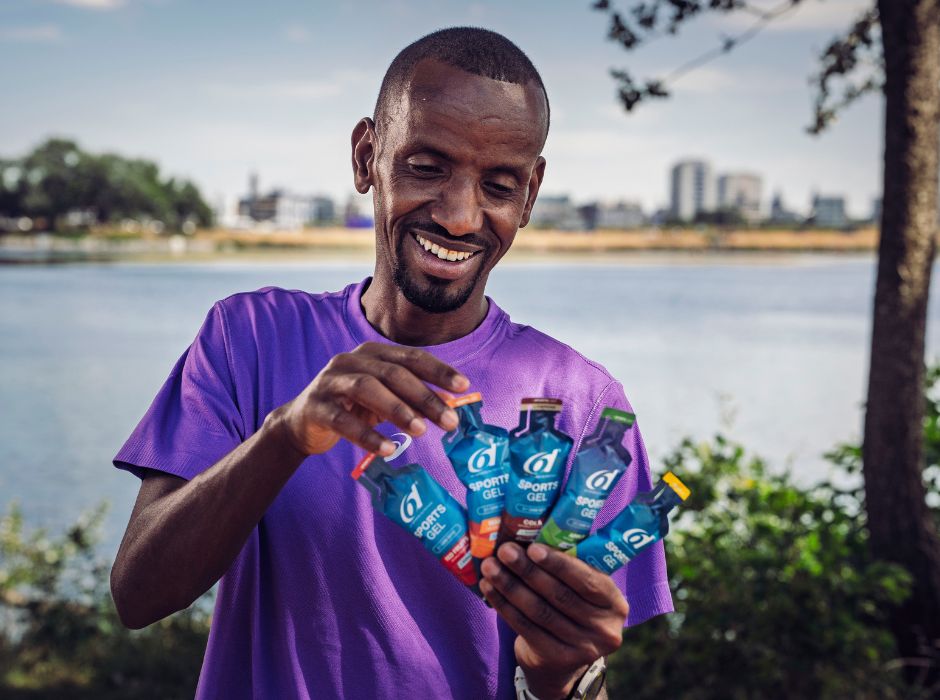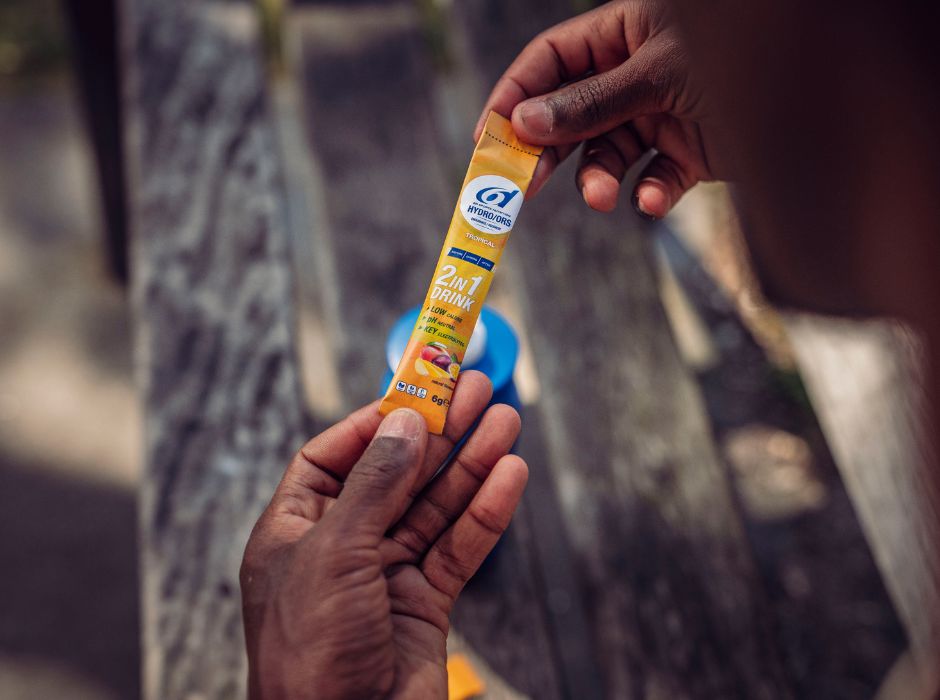
What should I eat and drink before running?
Eat a easily digestible carbohydrate-rich meal 2-3 hours before your running session. Between this meal and the start of your run, it's best to drink another 500-1000ml. In addition to water, sodium-rich sports drinks like the 6d Hydro Ors or the 6d Sports Drink ensure efficient hydration, especially in warm weather. Since carrying sports drinks isn't always practical, it's important to start with an optimal fluid balance.
If you want to carbohydrate-load in the run-up to a race, the 6d Ultra Drink is your best choice. 15 minutes before the start, you can still take a 6d Sports Gel or 6d Sports Chew, especially if you haven't eaten enough leading up to your activity.
What should I eat and drink during running?
During your run, you quickly burn 400–600 kcal per hour. For endurance runs from 60 to 90 minutes, it's crucial to replenish your energy in time. Therefore, don't just take a 6d Sports Gel with 1 Sports Unit (30g carbohydrates) before the start, but also halfway through. Prefer something else? Then opt for a 6d Sports Chew.
Does your intensive running session last two to three hours? Then you need 2 Sports Units per hour. Simply take a 6d Sports Gel every 30 minutes. Because these gels also contain sodium, you can fully sustain such an effort with only 6d Sports Gels, provided you bring enough water. Drink a few sips of water immediately after each gel for optimal absorption. How much water you need exactly depends on your sweat loss. You can accurately determine this via a sweat test. Variants with caffeine provide an extra physical and mental boost.
For intensive runs from three hours, you can add a third Sports Unit every hour. This can be done, for example, by drinking 500ml of 6d Sports Drink every hour in addition to 2 6d Sports Gels. This brings you to 90g of carbohydrates per hour. You can switch to our Ultra products for more convenience:
- 2 6d Ultra Gels / hour
- or 1 6d Ultra Gel + 1 6d Ultra Chew / hour
- or 500 ml 6d Ultra Drink / hour
How many Sports or Ultra Units you need depends on the duration and intensity of your training. You can find more information about this on the pages of our Sports Series and Ultra Series.
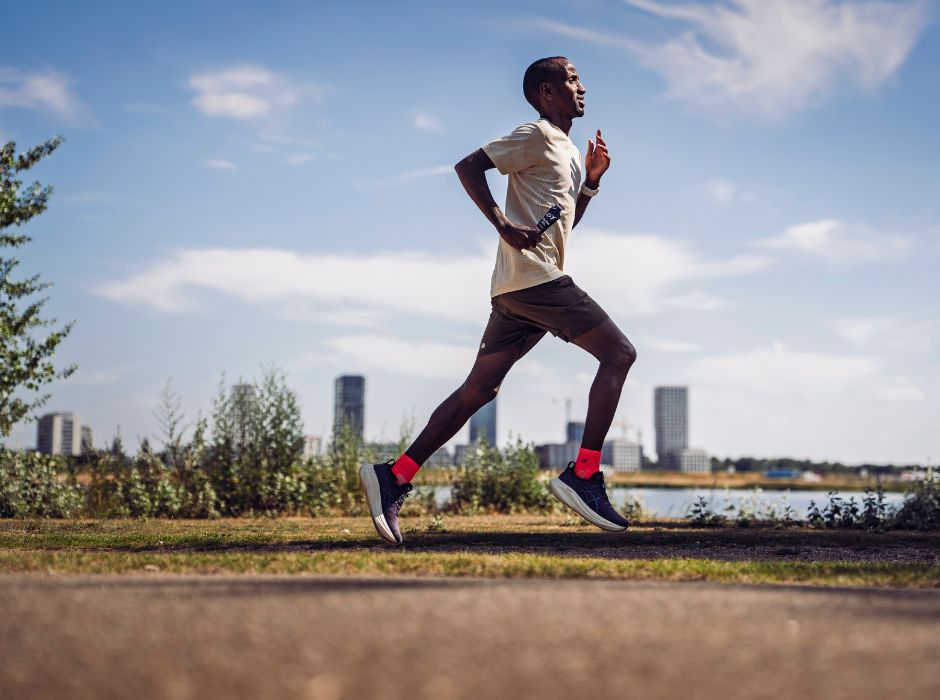
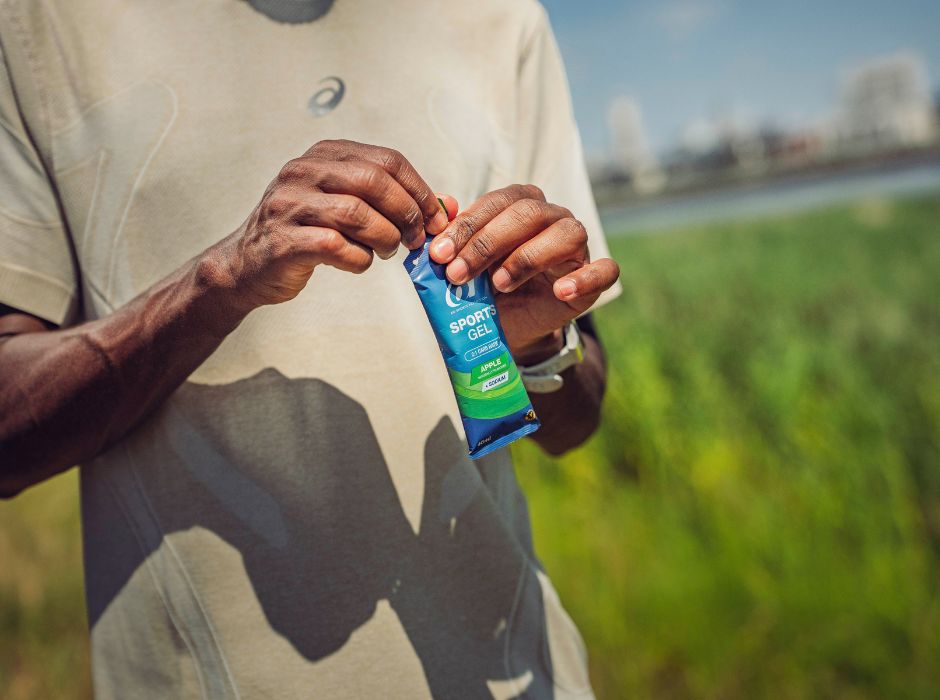
Train your nutrition
All 6d sports drinks, gels, and chews are rapidly absorbed and easily digestible thanks to their unique, scientifically proven composition. This minimizes the risk of discomfort during your run. Furthermore, our products, available in various flavors, have been extensively tested and approved by Bashir Abdi, Isaac Kimeli, and John Heymans.
Nevertheless, acclimatization is essential to prevent stomach and intestinal issues, especially when aiming for higher carbohydrate intakes. Train your nutrition plan multiple times before your race.
What should I eat and drink after running?
After your run, it's important to replenish both your energy (carbohydrates) and fluids. Your muscles also need recovery with the help of quality proteins. Take 1 Protein Unit (exactly 20g of protein) to repair muscle damage from the exertion and stimulate training progression.
Do you have another tough running session planned for the next day? Then choose 6d Recovery Shake. It contains not only 20g of protein but also the right amount of carbohydrates to quickly replenish your energy reserves. Before going to bed, preferably take another 40g of protein (2 Protein Units), so your muscles can also recover optimally during the night. This can be done with a double portion of the 6d Whey Shake, 6d Vegan Protein, 6d Whey Drink or 6d Whey Shot.
For a series of consecutive efforts, in addition to the products from our Protein Series, you can also consider 6d Cherry Juice or 6d Hydro Ors as extra recovery drinks.
If you have several days to recover, or your run was less intensive, 1 Protein Unit after exercise is usually sufficient. In that case, one serving of the 6d Whey Shake, 6d Vegan Protein, 6d Whey Drink or 6d Whey Shot is sufficient. Thanks to the variety in taste and texture, our Protein Series offers something for everyone.
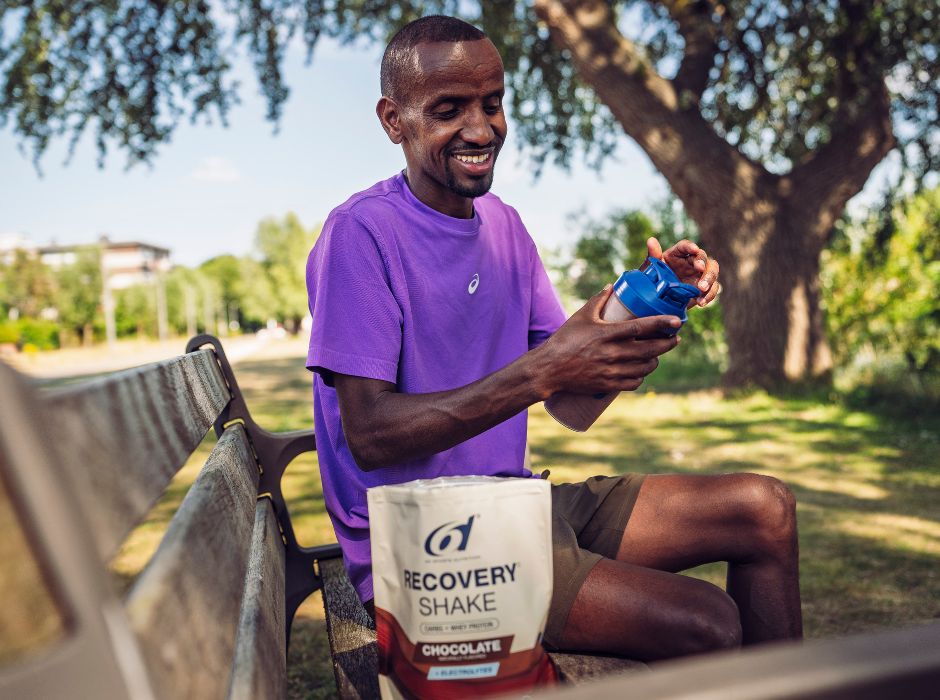
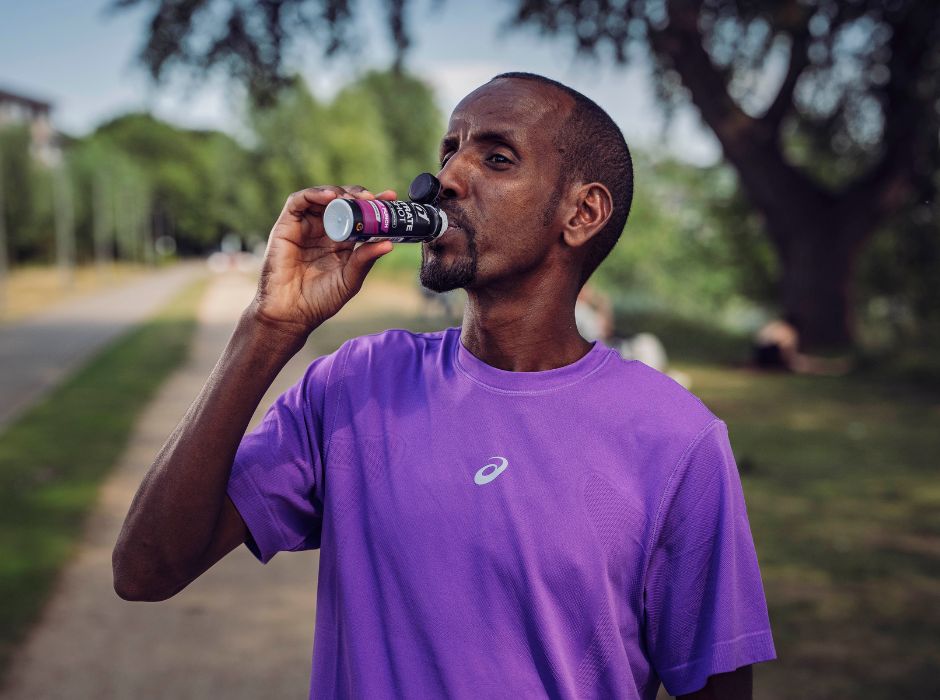
What are the best supplements for distance runners?
In addition, there are also supplements that can improve your running performance or promote your recovery. These are primarily interesting for runners working towards an important athletic goal.
Do you often suffer from nutritional deficiencies, aches, or ailments? We can also help you with an extensive range of health-supporting supplements.
